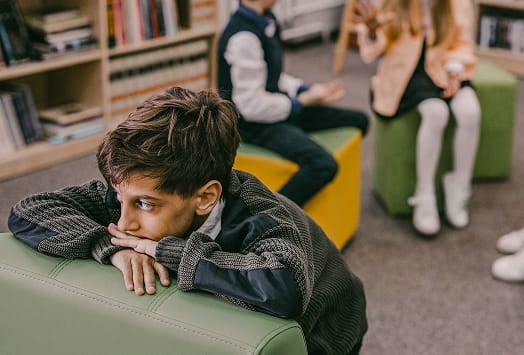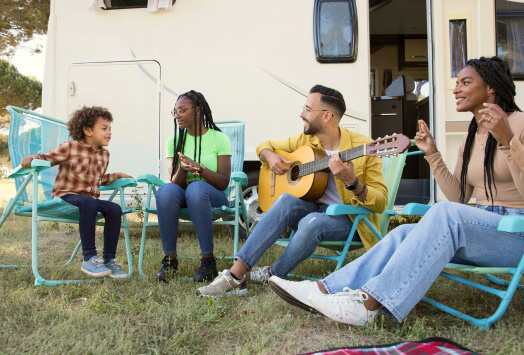Did you know that children first learn to spell around the ages of 5 and 6 years old? This is when they begin to associate the letters in written words with the sounds reflected in spoken words!
Learning to spell is the pathway to improved reading and writing skills. And with the right spelling games, you can have fun with your children (while sneaking in some teachings)!
Here are some of our favorite educational games that you can try at home.
1. Slap the word
Start by grouping similarly spelled words on a board. You can use a chalkboard, a whiteboard, a poster board, or an easel pad. Give each player a fly swatter, then call out words from the board. Whoever locates and slaps the correct word wins a point.
You can play this game solo, or turn it into a competition among two players. If you have more than two players, practice taking turns so everyone gets a fair chance.
No matter how many players you have, this is a great way to release some of that pent-up energy your little ones may have (or..that you may have..).
2. Spelling bees
If you're familiar with the traditional spelling bee rules, try modifying them a bit to focus less on eliminating players and more on positive reinforcement.
For example: Keep a score of correct answers, and write the correct words on a board so players can see how they're spelled.
As a refresher, the reader should pronounce the word clearly, use it in a sentence, and then pronounce the word one more time. The speller should say the word, spell it, then repeat the word.
3. Sparkle
A collaborative twist on the spelling bee, this is another fun way to get the little ones up and active.
Round the players up into a line or circle facing the same direction. Say a word, like "night." Choose one person to start the spelling, calling out the letter "N." Then, the next person would say "I," and so on, until the word is complete.
Once the word is spelled, the next person must say "Sparkle." The person after that must sit down. Additionally, whoever says a wrong letter must also sit down. Those who are seated are "out" until there's one player left standing.
Tip: Try asking each player to repeat the previous player's letter before saying their own. This way, the sequence for "night" would become:
- N
- N-I
- N-I-G
- N-I-G-H
- N-I-G-H-T
- Sparkle!
This method will help everyone retain and memorize the spelling of the word!
4. Word searches
Word searches don't have to be intimidating, especially for new spellers! There are several varieties available based on theme and difficulty level. You can even build your own free ones online, with tools like Discovery Education.
This is a great tool for visual learners, as it helps your child separate the "wrong" answers from the right ones.
5. Crossword Puzzles
Much like word searches, crossword puzzles are other fun games oriented to the visual learner and are a great option for solo players. Getting the appropriate number of letters into the boxes is a key problem-solving skill, too.
Plus, you get the added benefit of flexing your child's reading muscles with hints that you can tailor to their skill level.
6. Hangman
This game can be played solo or adapted into a collaborative group activity. Start by deciding on a "secret word." Then, draw blank spaces that match the number of letters in the word.
Let the players guess the word, letter by letter. If they guess correctly, place the letter in the appropriate space. If not, add a body part to your "hangman." The round ends when either the word or the hangman is complete — whichever comes first.
Tip: Consider giving a hint at the beginning of each round. For advanced spellers, try identifying whether the word is a noun, verb, or adjective, and giving them a category to help them out, like insects, animals, or foods.
7. Spelling pong
For this game, you'll need some disposable cups, a marker, and some ping pong balls. We promise this isn’t like the games your kids will play in college...
Write a letter on the inside bottom of each cup and arrange the cups into a grid. Each player takes turns bouncing a ping pong ball into a cup. Then, based on the letter of the cup, each player has to spell a word that starts with that letter.
Turn it into a competition by seeing how many words each player can spell in a certain amount of time. For larger groups, consider dividing into teams and giving each one a grid.
Players from each team can go head-to-head in spelling the most words with their letter in a given time period.
8. Scrabble
The rules of Scrabble can be intimidating for all age levels. Instead, try simplifying them for your own use. And if you don't have your own copy of the game, you can make your own version at home or modify your games of Boggle and Bananagrams.
For younger spellers, try using the letter pieces to partially spell out words for them to complete. Or, you could hand-select the letters you give to each player and see how many words they can come up with.
9. Vanishing Man
Think "hangman" but less morbid. In this version of the game, each player starts with a fully completed stick figure. The goal is to erase each figure — one body part at a time — as players guess the correct letters of each word.
You can get as creative as you want in designing your figures! Try letting your little one draw their own figures, too. You'd be surprised at what kind of outfits and traits they can come up with on their own.
10. Phonetic jumping
This game works best with an alphabet floor mat. Or, if you want to play it outside, you can draw the letters with chalk and turn it into a new form of Hopscotch.
To play, all you need to do is take turns picking a word. The player who picked the word gets to sound it out, then jump on the corresponding letters to spell it.
You can call out the phonetic sounds of each letter as they jump. With older children, challenge them to remember the sequence of the letters by letting them sound it out as they jump.
Which spelling games will you try?
Whether you have multiple players or just one, spelling games for kids can be a great way to develop reading, writing, and pronunciation.
And with a variety of games for kinetic and visual learners, everyone will be learning to spell in no time!
Not sure where to begin? Looking for more creative ways of learning at home? Contact us with your questions today. We're here to help!
















